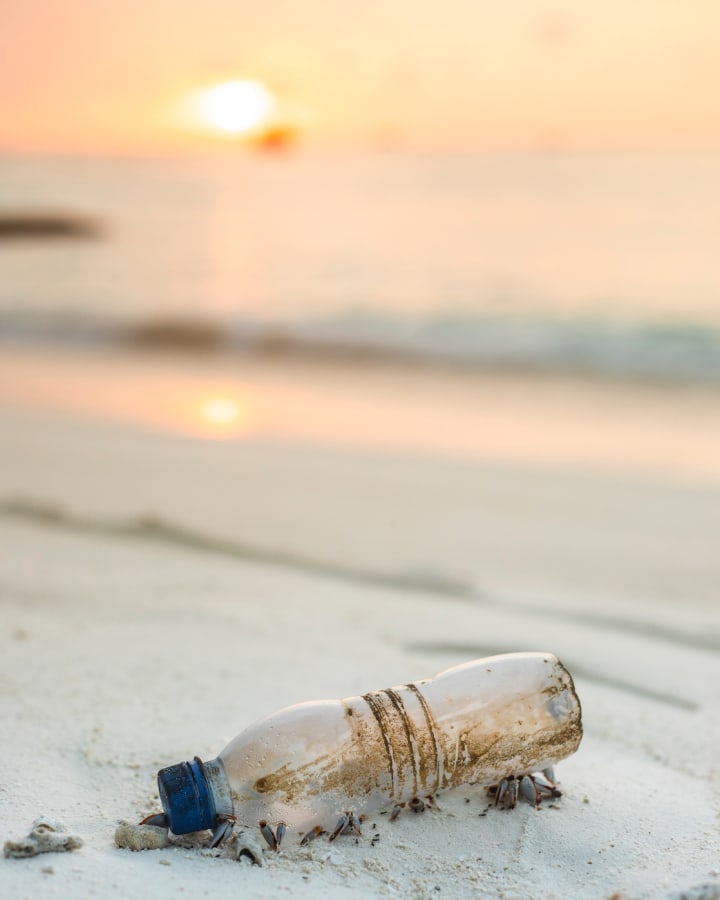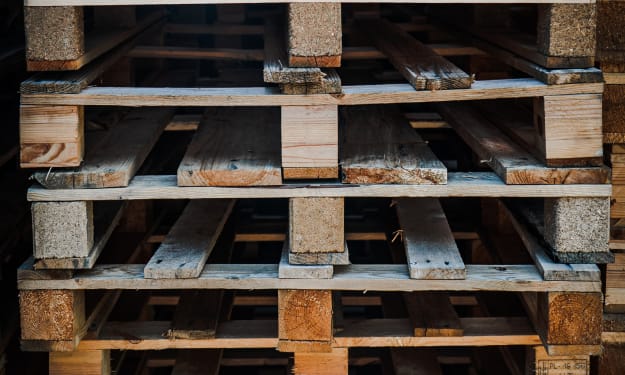Self-Sustainable Mind, Self-Sustainable Life
Cultivating a balanced lifestyle and mindset

Don’t ever forget these things:
The nature of the world.
My nature.
How I relate to the world.
What proportion of it I make up.
That you are part of nature, and no one can prevent you from speaking and acting in harmony with it, always.
-Marcus Aurelius
The simple act of acknowledging your impact on the surrounding environment is enough to create momentum toward a self-sustainable lifestyle. We know that plastics take hundreds of years to decompose, our emissions from consuming non-renewable energy sources tamper with the delicate balance in our atmosphere, and we are overharvesting renewable food resources to the point of unsustainability.
Let’s take a look at how establishing self-sustainable habits to be more environmentally conscious can help us build a more self-sustainable mind.
Toxic Plastic, Toxic Thoughts

Think about the use of plastics. They’re completely toxic to our environment. There’s no longevity for their practical use - it’s one and done. Years go by, still no decomposition. They sit on the side of the road, along hiking trails, in our rivers and oceans killing off the beautiful wildlife. Bottles, bags, and containers pile up all around us with no place to go. And yet, we continue to purchase products in plastic packaging.
Compare plastic to toxic thoughts. Toxic thoughts enter our mind by virtue of our upbringing, social groups, social media exposure, watching the news, and many other sources. Not to mention those of us who fall in the psychopathology category. These thoughts do not have any positive long-term use; they’re purely harmful and unhealthy. Even when one goes to therapy or practices meditation to manage or rid these thoughts, their impact remains. Similar to hammering a nail into a fence and promptly removing it - there’s going to be a hole in that fence even after the nail is gone.
Thought toxicity is a multivariate subject because the source of thoughts is so diverse and complex. Have you ever stopped to think about where your toxic thoughts originate? In my article Achieving Mental Liberation I discuss an idea that completely refocused my mindfulness practices to address toxic thoughts.
Shift from Non-Renewables

Consuming non-renewable energy sources like gasoline for your car is comparable to seeking exterior contributions to your inner sense of health and peace. We can easily allow ourselves to fall prey to the illusion that in order to be happy, we need to seek out happiness outside of ourselves. Whether it’s through prescription medication, using other people as crutches, quick-fixes like hookups or abusing recreational drugs or alcohol - just to name a few. Perhaps momentarily a sense of happiness comes over us, but it is most certainly fleeting and not positively impactful to our overall health.
Using renewable resources is like turning inward and doing the inner work necessary to achieve long-lasting, continuous health and peace. Renewable resources are provided by the Earth, and when used do not cause harmful effects on the environment. Everything we need can be found within ourselves. Our minds are like the sun, providing limitless energy and resources. We have what is necessary for a meaningful and happy life inside ourselves.
What are some ways to access the power we have inside? Meditation will open doors you never knew previously existed. Just as weightlifting is utilized to gain physical strength, meditation is for building mental strength and a deeper understanding of yourself. Implementing meditation into a daily morning routine is an undeniably healthy way to turn inward and become mentally self-sustainable. Want some ideas for creating a healthy morning routine? Check out this article here.
Overharvesting and Social Cohesion

According to Feeding America, 72 billion pounds of food is wasted in the United States every single year. A hefty contributor to the food waste issue is overharvesting, as roughly 20 billion pounds of fruits and vegetables don’t even make it out of the field. Seeking out more than what is needed results in a large amount of waste, thus depleting the very resource we rely on. We sacrifice so much of a valuable resource simply because it is cheap, easy, and everyone else is doing it.
This can be compared to our strong desires to sacrifice our own well-being in order to maintain social cohesion. It’s much easier to attach to an already established group, requiring less mental resources to speak up for our own individuality. Wanting to belong to some sort of group that shares our ideals is natural, but what happens when we sacrifice part of our core identity simply for the sake of belonging?
At some point, the sense of belonging for its own sake will run out, and you will be left with a gap that can only be filled by being true to yourself. As you make the shift from only belonging to speaking your truth, the proper social groups that match your sense of individualism will follow. This promotes a much more sustainable mentality and sustainable relationships.
Our minds are more powerful than most of us realize. Take a look inward to discover how you can build a self-sustainable mind while taking lessons from eco-friendly practices.
About the Creator
Dan Pittman
I write to encourage perspective. I write to challenge readers to really peel back the layers of their mind and get their hands dirty. Our brains are fascinating and even moreso when we dive deep into their depths.






Comments
There are no comments for this story
Be the first to respond and start the conversation.